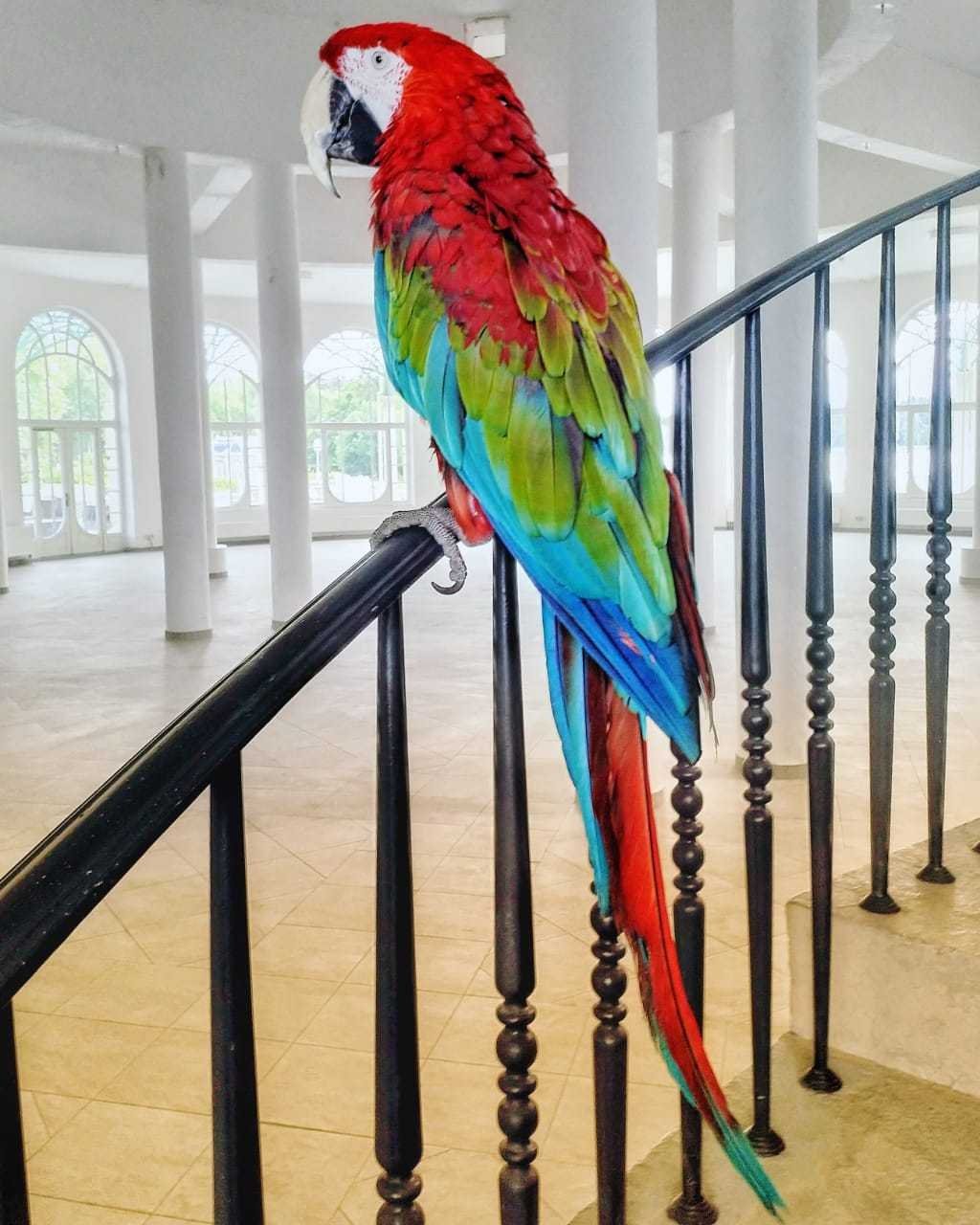
ChatGPT
ChatGPT
How to choose and keep a macaw parrot at home: secrets of successful care
Introduction:
Bringing a macaw into your home is an exciting decision, but it comes with a lot of responsibility. Macaws are magnificent birds with colorful plumage and vibrant personalities. To ensure his well-being and happiness, it is important to understand the secrets of choosing and keeping a macaw at home. In this guide, we'll reveal the key factors and secrets to successfully caring for these majestic birds.
1. Macaw Understanding:
Maws are highly intelligent and social creatures native to the tropical forests of Central and South America. They belong to the parrot family and are known for their bright colors, impressive size and playful nature. Macaws thrive on social interaction, mental stimulation and physical activity.
2. Choosing the right Macaw parrot:
When choosing a macaw, consider factors such as size, temperament, and compatibility with your lifestyle. There are several species of macaws, each with their own unique characteristics. Explore different types to find the one that suits your personality and life situation. Spend time interacting with potential birds to assess their temperament and suitability as a companion.
3. Providing suitable conditions:
macaws require a spacious and enriching environment to thrive. Buy a large cage or aviary with enough space for your bird to move around, spread its wings and exercise. Use perches of varying sizes and textures, toys for mental stimulation, and opportunities for social interaction. Make sure the cage is located away from drafts, direct sunlight and household hazards.
4. Balanced diet and nutritious nutrition:
Offer a varied and balanced diet of high-quality pellets, fresh fruits, vegetables, nuts and seeds. Avoid eating foods high in fat, salt or sugar. Add treats to his diet from time to time and provide him with access to clean, fresh water at all times. Consult your veterinarian or poultry specialist for specific nutritional recommendations.
5. Socialization and training:
Macaws are social birds that bond closely with their caregivers. Spend time bonding with your macaw by talking, playing, and exercising with positive reinforcement. Establishing a strong bond will improve their well-being and prevent behavior problems. However, it is critical to set boundaries and provide consistent training to prevent unwanted behavior.
6. Veterinary assistance:
Regular veterinary checkups are essential to maintaining the health and well-being of your macaw. Schedule annual wellness exams with your avian veterinarian to monitor their overall health, identify any potential problems early, and make sure they are up to date on vaccinations and parasite prevention. Also, be aware of any changes in behavior or appearance and contact your veterinarian promptly if necessary.
7. Environmental enrichment:
Create a stimulating environment for your macaw by offering a variety of toys, perches, and foraging opportunities. Macaws are intelligent birds that require mental stimulation to prevent boredom and behavioral problems. Rotate toys regularly to keep him occupied and provide opportunities for natural behaviors such as chewing, climbing, and exploring.
8. Respect and patience:
Treat your macaw with respect, patience and understanding. Be attentive to his needs, preferences and individual characteristics. Avoid using punishment-based training methods and instead focus on positive reinforcement methods. Building a trusting relationship with your Macaw will foster mutual respect and strengthen your bond over time.
Conclusion:
By following these secrets to successful care, you can ensure a happy and fulfilling life for your macaw companion. With the right amount of attention, devotion and love, you will forge a deep and lasting bond with these majestic birds that will bring joy and companionship to your home for years to come.






